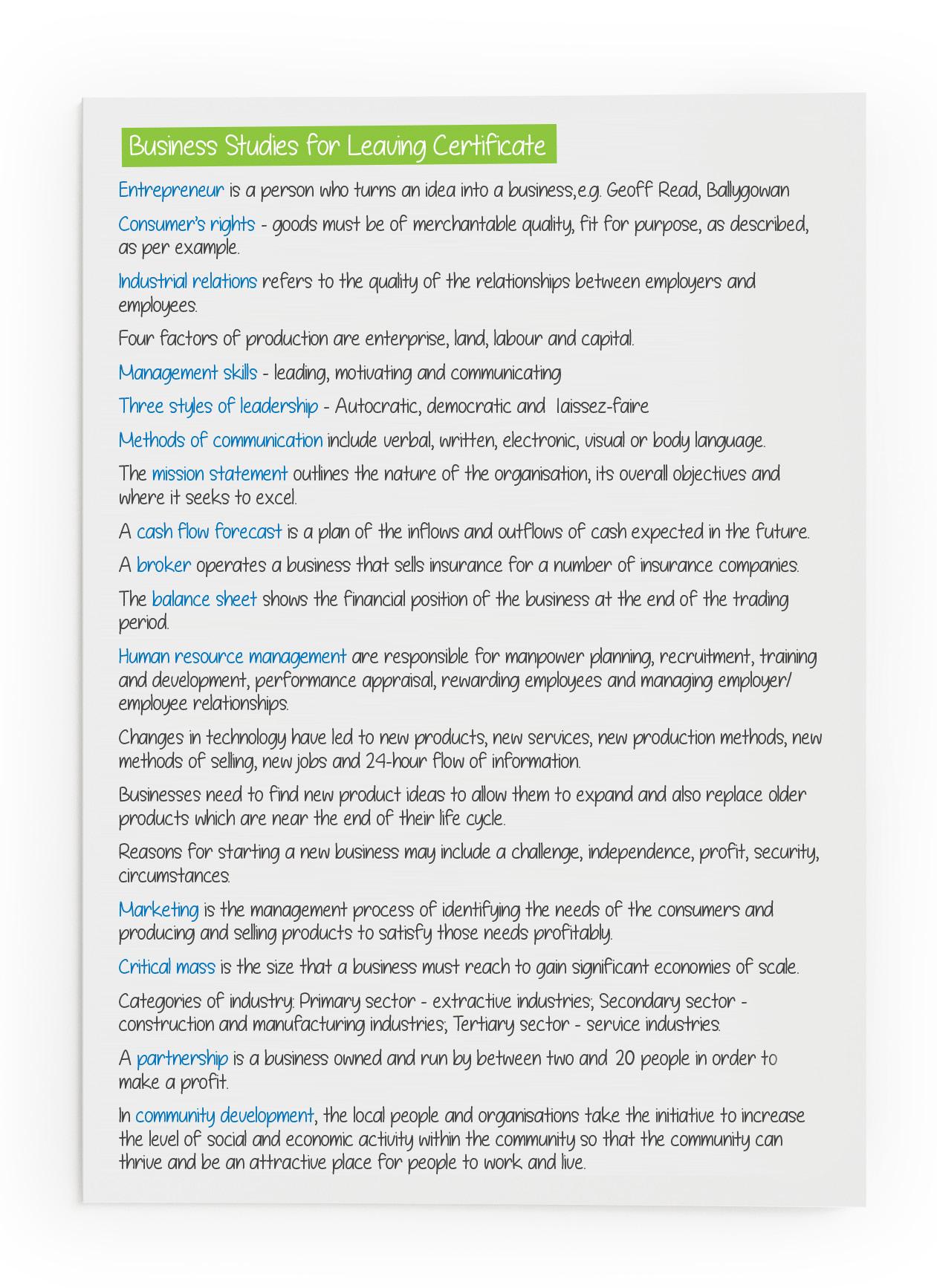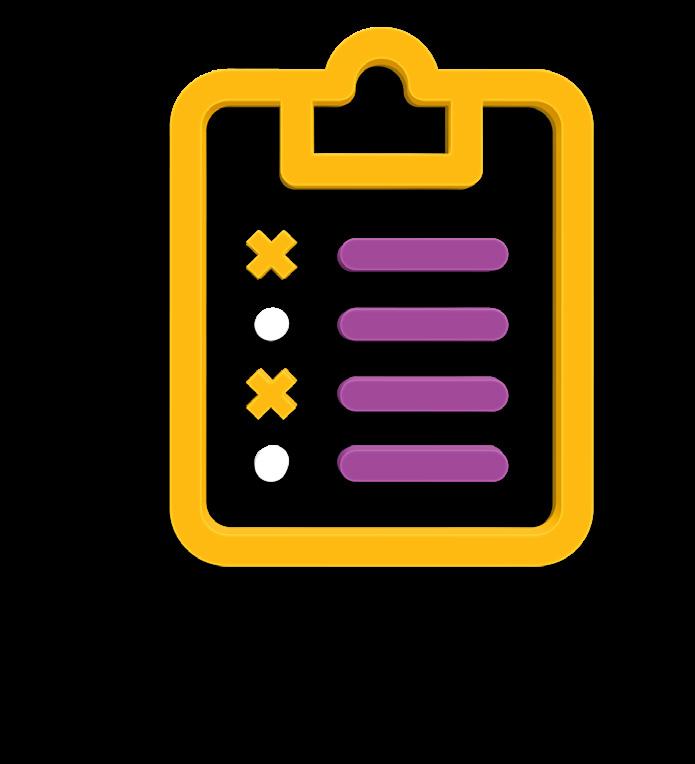WORKBOOK
Practical exercises
POKER
Proven and e ective note making system

WORKBOOK
Practical exercises
POKER
Proven and e ective note making system
METHODOLOGY theory and practice
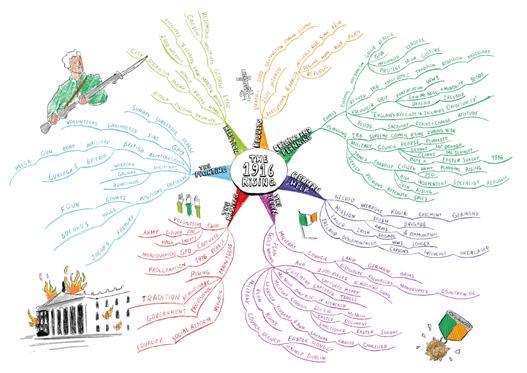
STUDY PLANNER designed to help students increase their productivity


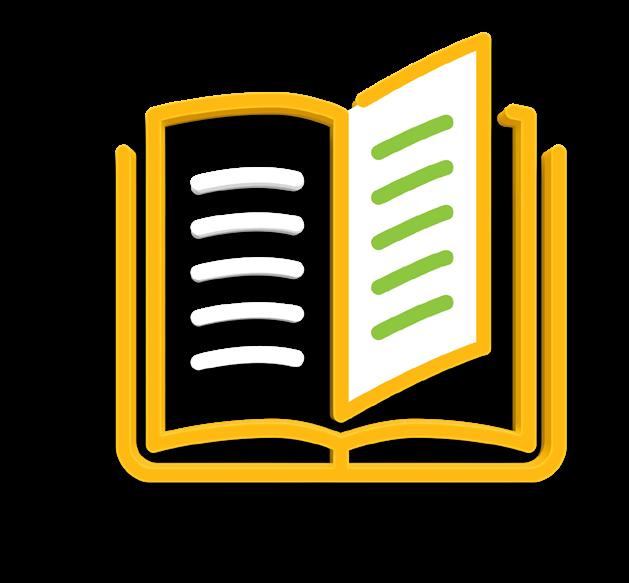
What is the best study advice you have been given, and why?
Were you ever given study advice that didn’t work, and why?
This exercise will help you determine the type of mindset you are inclined to have. Read through the following statements and indicate to what extent you would agree or disagree.
Which mindset do you have?
1. You have a certain amount of intelligence, and you can’t really do much to change it.
Agree Maybe Disagree
2. No matter who you are, you can significantly change your intelligence level.
Agree Maybe Disagree
3. You can learn new things, but you can’t change your underlying level of intelligence. Agree Maybe Disagree
4. Learning new things can increase your underlying intelligence.
Agree Maybe Disagree
5. Talent is something you’re born with, not something you can develop.
Agree Maybe Disagree
6. If you practise something for long enough, you can develop a talent for it.
Agree Maybe Disagree
7. People who are good at a particular skill were born with a higher level of natural ability. Agree Maybe Disagree
8. People who are good at a particular skill have spent a lot of time practising that skill, regardless of natural ability. Agree Maybe Disagree
9. You can always substantially change how much talent you have.
Agree Maybe Disagree
10. You can learn new things, but you can’t really change your basic level of talent.
Agree Maybe Disagree
Now work out your score:
Step 1: Check which statements are growth mindset or fixed mindset statements and write either F or G beside each one.
Step 2: For growth statements, give yourself the following scores:
For fixed statements, give yourself the following scores:
Then add up your total score for the exercise.
Step 3: Your results
a. So, what mindset do you have?
b. Are you surprised?
c. Why?
Developing and nurturing a growth mindset towards life and learning can provide you with positive outcomes.
Why do you want to achieve these goals?
What areas need attention?
Pre-test
Write or illustrate all you know about the topic.
Overview
Scan back over the article and pick out the key headings. Write them in the box at the end.
Once you have tested your knowledge, the next step is to get an overview of the topic. This is the big picture. You don’t need to go into detail, you’re trying to get the overall gist of the topic. What are the key ideas? What is important in the topic? What is not important? What information are they looking for to answer the question? You should spend no more than 5 minutes on this step. Scan over the text and identify the main subheadings, these provide the overview of the topic. You can put these in the box at the end of the text.
Cultural nationalism: The Gaelic League and the GAA influenced many of the leaders of the 1916 Rising. Some people believed that an independent Ireland
was needed to protect Irish culture. Cultural nationalism encouraged the growth of separatism - the idea that Ireland should be fully independent.
Revived IRB: The IRB (Irish Republican Brotherhood) was revived in the early 20th century. It had a tradition of physical force – that a rebellion or rising was necessary to gain independence for Ireland.
Volunteer split: The Irish Volunteers split over Ireland’s participation in the First World War. The minority (about 10,000) said Irishmen should defend Ireland at home.
• They were led by Eoin MacNeill, but they were dominated by the IRB. They could provide the armed men who would be necessary for the rising.
The First World War: Britain’s participation in the First World War provided timing. The old slogan was ‘England’s difficulty is Ireland’s opportunity’, so that while England was involved in a war a rising could be organised.
The Supreme Council of the IRB decided to stage a rising during the war. It set up a Military Council to plan it.
The Military Council was composed of Pearse, Plunkett, Ceannt, MacDonagh, Clarke and MacDermott. They continued the secret planning of the rising unknown to the Supreme Council. They set the date as Easter Sunday, 1916.
The Military Council became aware that James Connolly was planning his own rising with the Citizen Army. Connolly set up the Irish Citizen Army during the 1913 Dublin Strike and Lockout to protect the workers from attacks by the police. There were about 250 members; their aim was the establishment of an independent and socialist Irish republic.
• The Military Council persuaded him to join their rising.
Secrecy: The Military Council wanted to ensure the plans for the rising were kept secret, so they did not tell anybody else. They believed many previous attempts at rebellion in Ireland had been unsuccessful because of spies.
The Military Council needed weapons. Roger Casement was sent to Germany.
• Casement was a former British diplomat who had become a member of the IRB.
His mission was to:
• form an Irish brigade from Irish prisoners of war held in Germany.
• acquire arms and ammunition for the rising.
He failed to raise an Irish brigade, because the men were supporters of Home Rule. He was given one shipload of arms for the rising.
In Ireland, there was growing disappointment with the progress of the First World War.
• The war dragged on for longer than expected, so Home Rule seemed more distant.
• Redmond’s demands for a separate Irish Brigade were rejected.
• Carson’s influence in government increased when he became a member of it.
The Military Council planned to land the arms from Germany.
• When the Volunteers were on manoeuvres, they could distribute the arms to them. This would create a countrywide rising.
The Germans sent the Aud to Ireland with 20,000 rifles and 10 machine guns. It was captured off the Kerry coast by the British navy.
• There were now few or no arms for a countrywide rising.
Roger Casement landed from a submarine near Tralee and was captured. He wanted to stop the rising, because he thought it would not be successful.
The Irish Volunteers: The Irish Volunteers were the key to the success of the rising; but MacNeill, leader of the Volunteers, would rise only if the Volunteers were attacked.
The Military Council had a plan to deceive MacNeill; they published the ‘Castle Document’ – this was supposed to be a document from Dublin Castle with a plan to arrest the leader of the Volunteers.
• As a result, MacNeill sanctioned manoeuvres for the Irish Volunteers for Easter Sunday.
Soon MacNeill learnt that the document was a forgery, and also that the Aud had been captured. So, he cancelled the manoeuvres (with his countermanding orders).
Now the Military Council had neither arms nor men for a countrywide rising.
• The plan for a rising on Easter Sunday was in ruins.
The Military Council decided on a rising for Easter Monday
• The rising would now be mainly a Dublin rising.
On Easter Monday morning, about 1,600 Irish Volunteers and 200 Citizen Army members marched through the streets of Dublin from Liberty Hall.
Some captured the GPO in Sackville Street (now O’Connell Street), where they set up their headquarters.
Pearse read the 1916 Proclamation outside the GPO. It was written mainly by
Pearse, but it was influenced by some of Connolly’s thinking.
Its main ideas were:
• The Rising was linked to a revolutionary tradition in Ireland.
• The leaders formed a provisional government.
• It demanded a republican Ireland.
• It promised social reform based on equality - ‘cherishing all the children of the nation equally’.
The insurgents (or rebels) took up defensive positions. Apart from the other groups, they captured the Four Courts, Jacob’s factory and Boland’s Mills.
There were some incidents in Wexford, Galway and Ashbourne, Co. Meath, but the fighting was confined mainly to Dublin.
The British army brought in reinforcements from the Curragh and from Britain.
• They used artillery and a gunboat, the Helga , which was brought up the Liffey.
It was only a question of time before the Volunteers would surrender. The GPO went on fire and the Volunteers had to withdraw.
Pearse surrendered on Saturday.
Unionists saw it as a disloyal attack during a world war.
Home Rulers saw it as an insult to Irishmen fighting for Home Rule in the war. Many were angry over the destruction of the city.
• But John Dillon warned in the House of Commons that ‘You are washing our whole life’s work in a sea of blood’.
The British army imposed martial (military) law.
• Fifteen of the leaders were executed, including the seven signatories of the Proclamation.
• The British arrested more than 2,000 suspects, who were interned in England; many were innocent people.
After the Rising, Lloyd George tried to negotiate a deal between Redmond and Carson, but he failed.
Death and destruction – about 500 people, mostly civilians, were killed and 2,500 were injured. The centre of Dublin was destroyed.
The executions and the arrests had a huge influence:
• They contributed to the rise of Sinn Féin and the decline of the Home Rule Party.
• The idea of a ‘republic’ began to replace ‘home rule’ as a solution to the ‘Irish question’.
SUPERCHARGE YOUR STUDY WITH THE POKER STUDY
OverviewKeywords
SUPERCHARGE YOUR STUDY WITH THE POKER STUDY SYSTEM
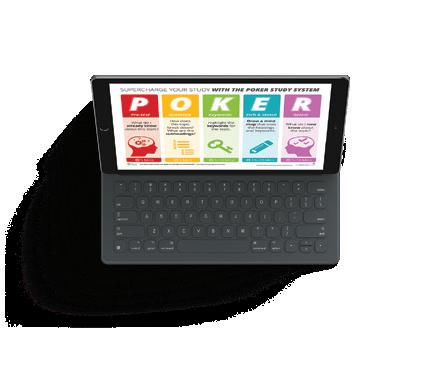
Highlight the keywords for the topic.
Read your text again and pick out the keywords you need to remember. Keywords
Etch & Sketch
are the
?
Draw a mind map that uses the headings and keywords.
OverviewKeywords Etch & Sketch Retest
headings and keywords.
Draw a mind map/one-page summary that uses the headings and keywords.
What do I now know about the topic?
What do I now know about the topic?
Fighting Defensive positions

Four courts, Jacob’s Factory, Boland’s Mills
Incidents Wexford, Galway Ashbourne
British reinforcements Curragh & Britain, artillery, gun Boat Helga GPO fire Volunteers surrendered Pearse Surrender Sunday Reaction Unionists disloyal attack Home Rulers insult; angry destrucution of city British Martial law15 leaders executed, 2,000 interned Llyod George negotiate Redmond V.s Carson
Death 5000 Destruction centre Dublin 2,500 injured Executions & Arrests influence rise Sinn Fein Decline Home Rule Party Republic
Needed weapons. Roger Casement Germany MissionIrish brigade + arms & ammunition Failed Irish brigade. 1 shipload arms
Ireland disappointment WW1longer, Carson’s influence increased
The Plan Military Council land German Arms distribute volunteers manoeuvres countrywide Plan Goes Wrong Aud 2,000 rifles 10 machine guns captured Kerry Casement captured Tralee MacNeill only rise if attacked
Cultural nationalism: Gaelic League GAA influenced leaders
Protect Irish culture
C.
IRB: early 20th
Revived
Tradition rebellion necessary Volunteer split: participation in WW1
Eoin MacNeill + Minority 10,000 defend Ireland
“England’s difficulty is Ireland’s Opportunity”
Blood Sacrifice: Deaths change attitude Planning IRB Supreme councilrising during war
Military council deceive MacNeill Castle Document –sanctioned Easter Sunday Learned forgery & Aud capture orders cancelled Plan ruins
Military council –Pearse, Plunkett, Ceannt, MacDonagh, Clarke, Mc Dermott
Military council decided Easter Monday –mainly Dublin
Date = Easter Sunday 1916 James Connolly Citizen Army planning rising 250 aim independent socialist republic Join rising Secrecy: previous attempts spies
citizen Army Liberty Hall
The Rising 1,600 volunteers 200
Captured GPO headquarters
Pearse 1916 Proclamation Main IdeasRising = revolutionary tradition, provisional government, republic, social reform & equality
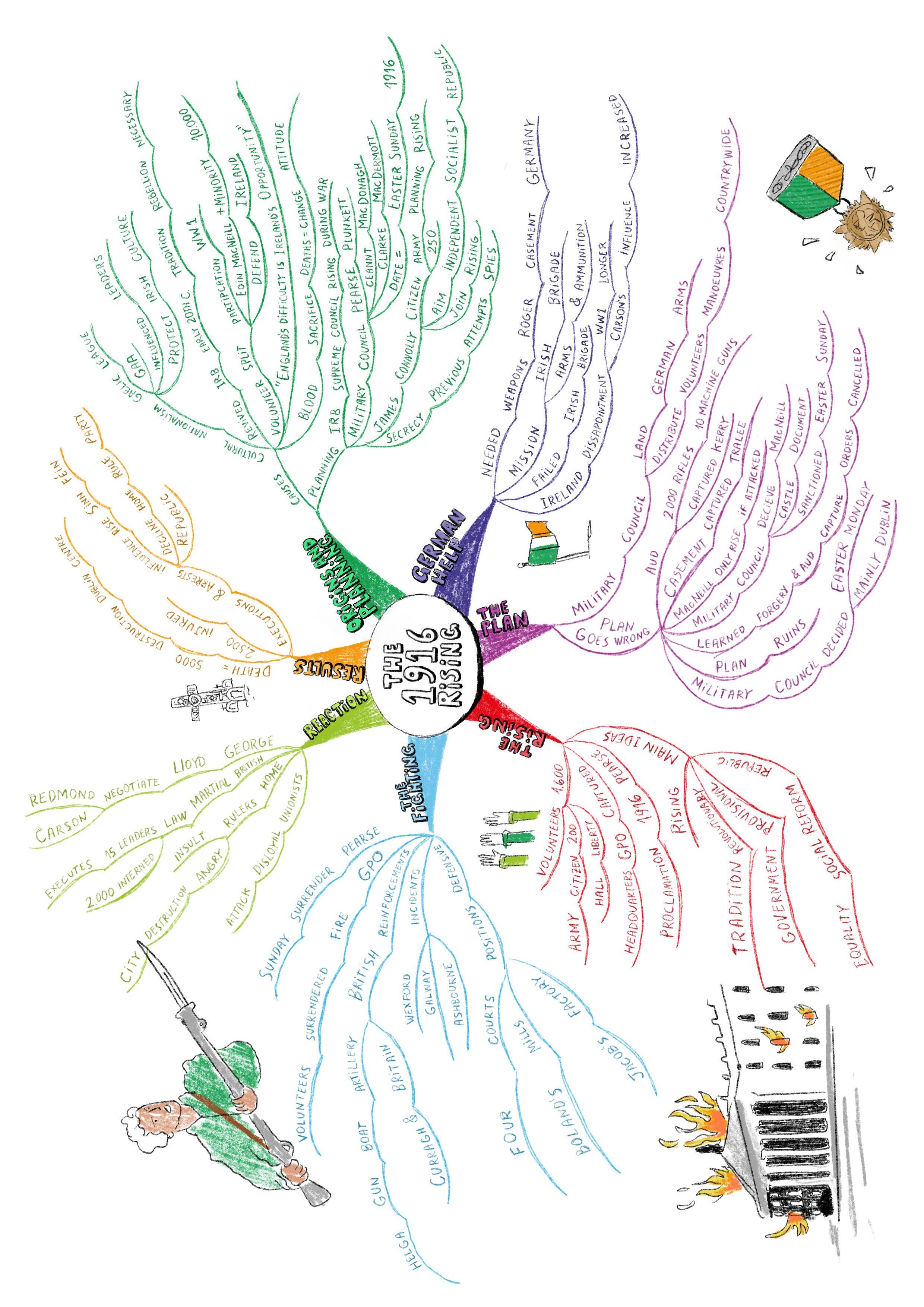
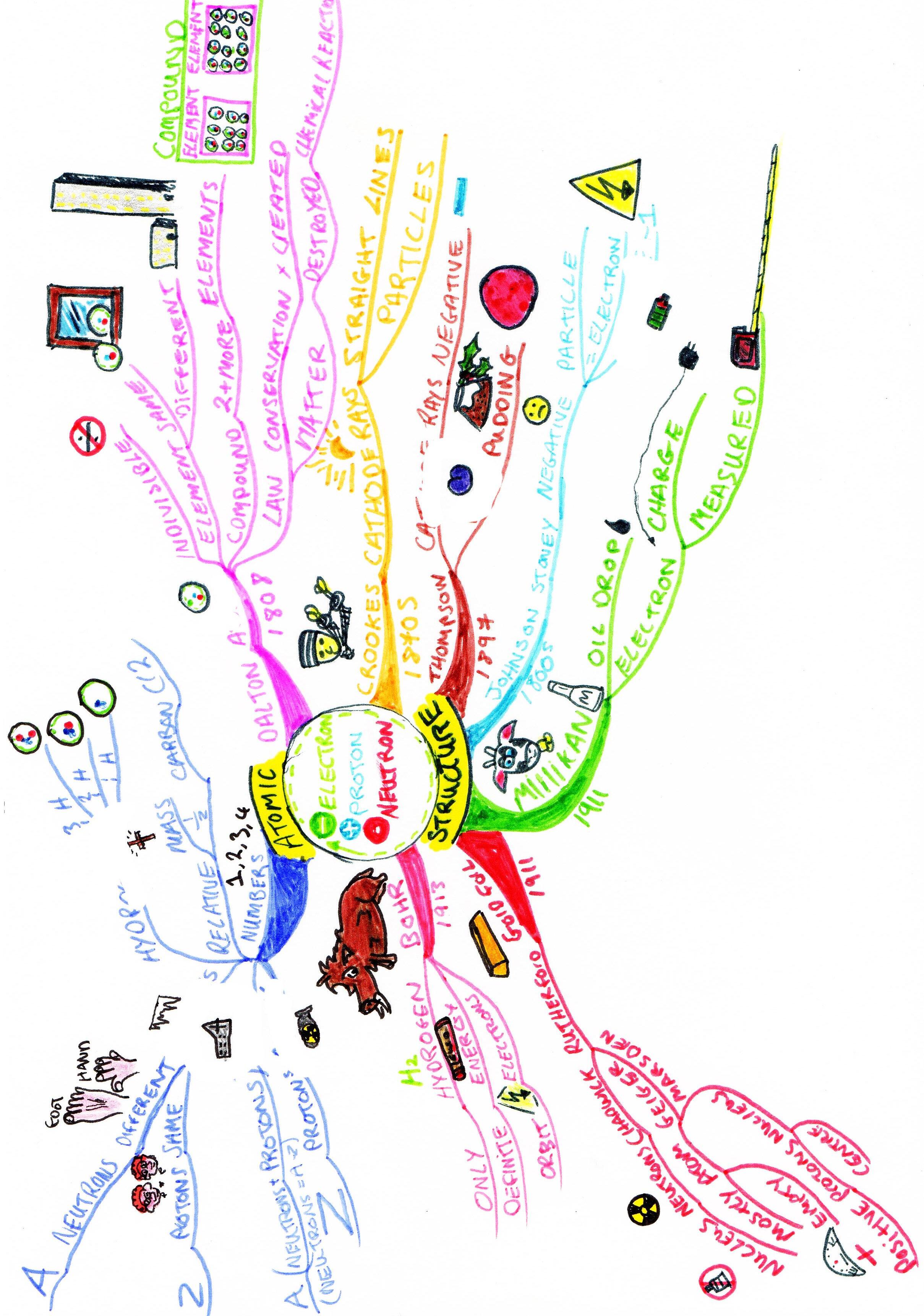
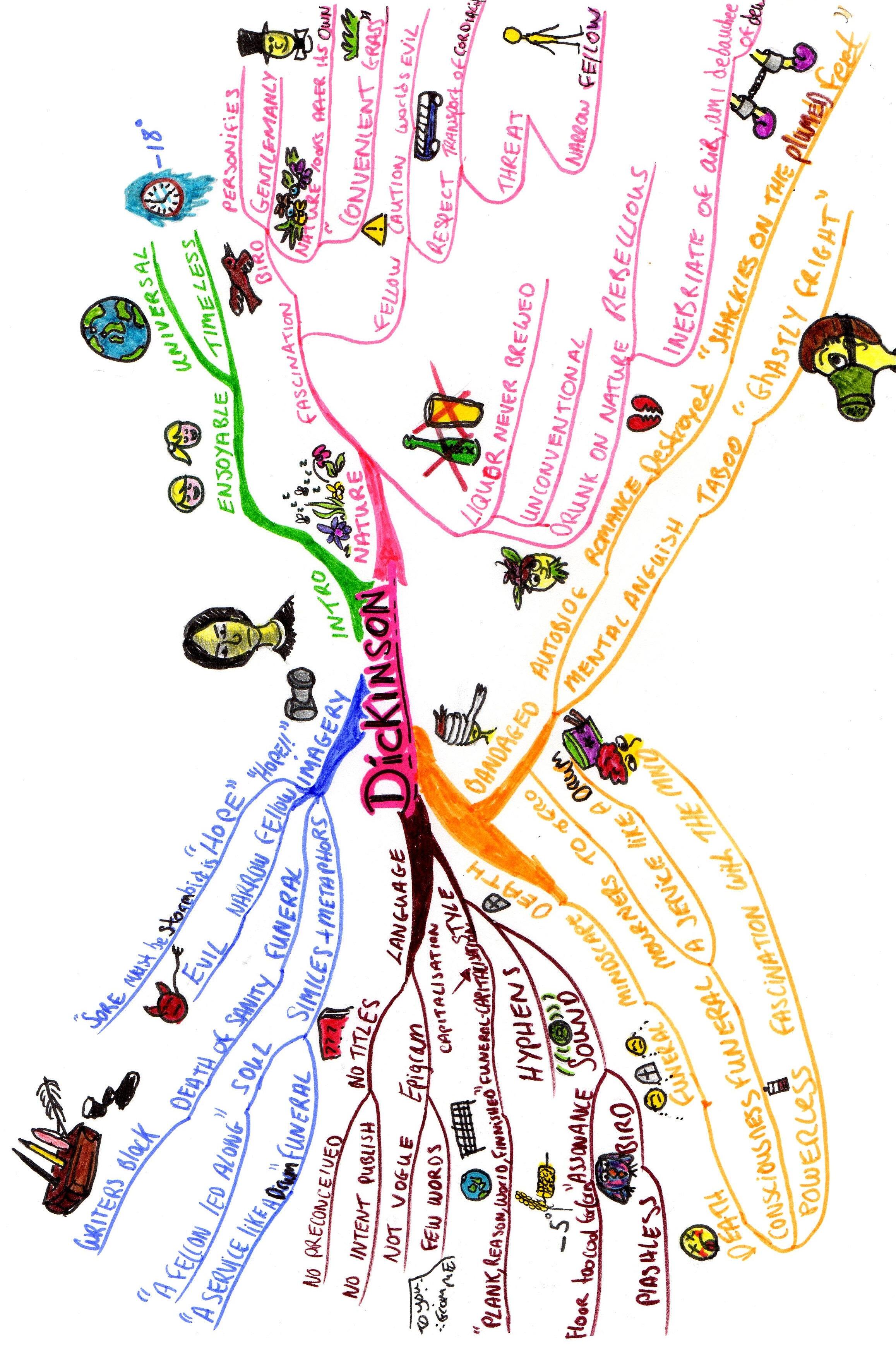


This Study Journal is designed to help you take positive steps to success in your assessments by giving you the tools that are needed to get the results you want.
The decisions you make between now and the start of your assessments can have a positive impact on your future. This journal, along with showing you what study is, provides you with an organisation system, a study methodology and memory techniques which will make study easier for you.
You will be able to break down what is important for any assessment, organise it and transfer it into your long-term memory. If you’re organised and if you learn to use your memory, your study experience will be a positive one! Most students struggle with studying because they are unsure of what they should be doing, but not you now!
Our brains remodel and remake themselves on an ongoing basis right throughout our lives in response to our experiences and what we learn. If we repeat these activities, those parts of our brain become stronger. Learning is the process where we gain new information and skills, and memory is the process where we retain that information over time. The more we practise, the stronger we are at making those connections in our brain.
Our memories have a great capacity for remembering, but if we do not REINFORCE learning, we will naturally forget! The Forgetting Curve shows how much we actually do forget, in the absence of regular review to reinforce memory. After just 24 hours, you will have forgotten 80% of what you have learned in a class, for example. After one week, you forget up to 90%.
There are three keys to accessing our memory and strengthening it:
Creating a link or association between what you are trying to remember and an image or feeling or experience.
This is where you use your imagination to again associate words with images in your mind.
Frequently repeating something over and over again.
Memory improvement aids known as mnemonics are very useful to know. One or two are enough to improve/enhance your particular way of trying to memorise short pieces of information like lists, procedures, dates etc. Like any other skills, they take practice and dedication.
Here are two simple ones:
An acronym is a system whereby you take the first letter of a group of words you need to memorise and create a catchy new word. Then practise the individual words so that you know what each of the letters mean. A common example would be FAT DAD… the counties of Northern Ireland.
Using humour and imagination can really help when trying to remember lists or facts. This is very like acronyms, but instead of creating a new word, each first letter is converted into a word in a sentence.
Mindset is about the approach or attitude that people take to success, especially when it comes to their learning. If you have a Growth Mindset, you value what you are doing and focus on the process of achieving, whereas with a Fixed Mindset, if you fail or are not the best then it has all been a waste of time.
I can learn anything I want to. When I am frustrated, I persevere, I want to challenge myself. When I fail, I learn. Tell me and I try harder. If you succeed, I’m inspired. My efforts and attitude determine everything.
I’m either good at it, or I’m not. When I am frustrated, I give up. I don’t like to be challenged. When I fail, I’m no good. Tell me I’m smart. If you succeed, I feel threatened. My abilities determine everything.
Stress is a feeling we get when struggling to cope with the pressures of life. Most scientists agree that some stress is good for you. We all need some stress to get up out of bed in the morning. It can help to motivate us and perform at our best, stimulating our body to produce an important hormone called cortisol.
Throw in a high-stress event and we can end up with a seriously unbalanced amount of it. Under stress, either real or imagined, our body responds by producing it. However the body cannot distinguish between a physical and psychological threat. So if we have a fight with a friend, or are late for class, we can react as if both are life and death situations. Although stress isn’t the only reason that cortisol is secreted into the bloodstream, it has been termed the ‘stress hormone’ as it is released when the body is in ‘fight/flight or freeze’ mode. When you encounter a stressful situation your body will start releasing other hormones too such as adrenaline within seconds to prepare you to fight – or, more likely, take flight. You are a walking, talking chemical making factory!
However, if you stay stressed for too long, it can have negative effects. Cortisol inhibits some of your immune responses, meaning you’re more likely to get sick and it may take longer for wounds to heal. And because cortisol acts on a part of your brain that controls appetite, it also increases your desire for fatty and sugary foods.
Remaining stressed for too long a period of time is not advisable. It is where stress may cross the line to become distress. It is recommended to eat healthy, nutritious food, exercise, practise mindfulness and get plenty of sleep to beat stress. There is nothing good to say about chronic stress. The ability to view stress as a challenge instead of a threat is a crucial skill to develop. The more time we spend imagining what might go wrong, the less time and energy our brains have to spend plotting for things to go right.
Resilience is simply your ability to bounce back and continue after you have met an obstacle or setback, like a failure or low score in an assessment. Success is about having the resilience to keep trying.
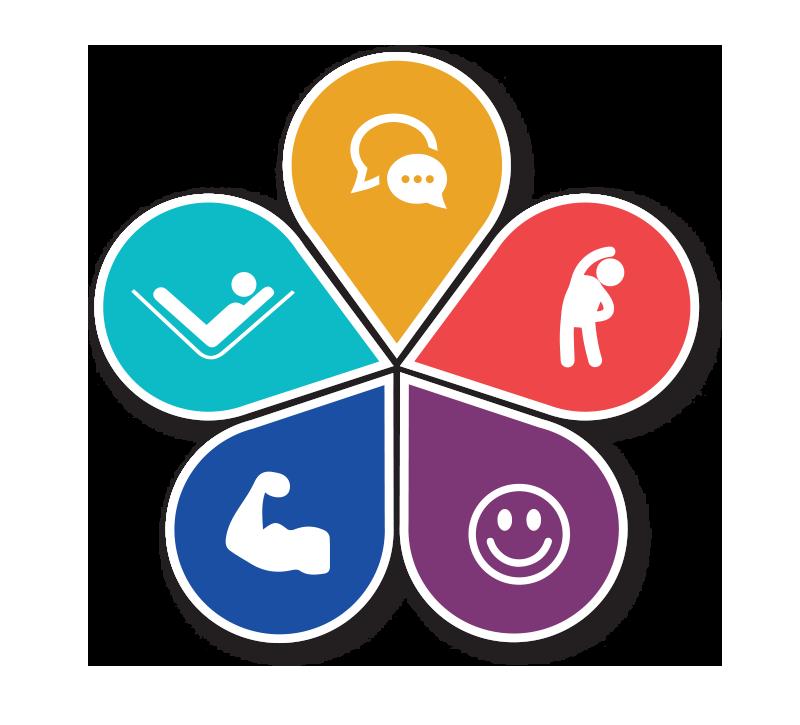
Express
Work to your strengths –celebrate your successes
Nourish yourself – diet, sleep, exercise and positive self-talk
Sunny side up – an attitude of gratitude
Learning Learning is a 3-step process:
The

Study is the time and attention that you devote to gaining knowledge in preparation for assessments; it involves creating your own notes and regular revision. There are three key stages to
Divide your subjects into topics and record how many times you have reviewed each topic throughout the year.
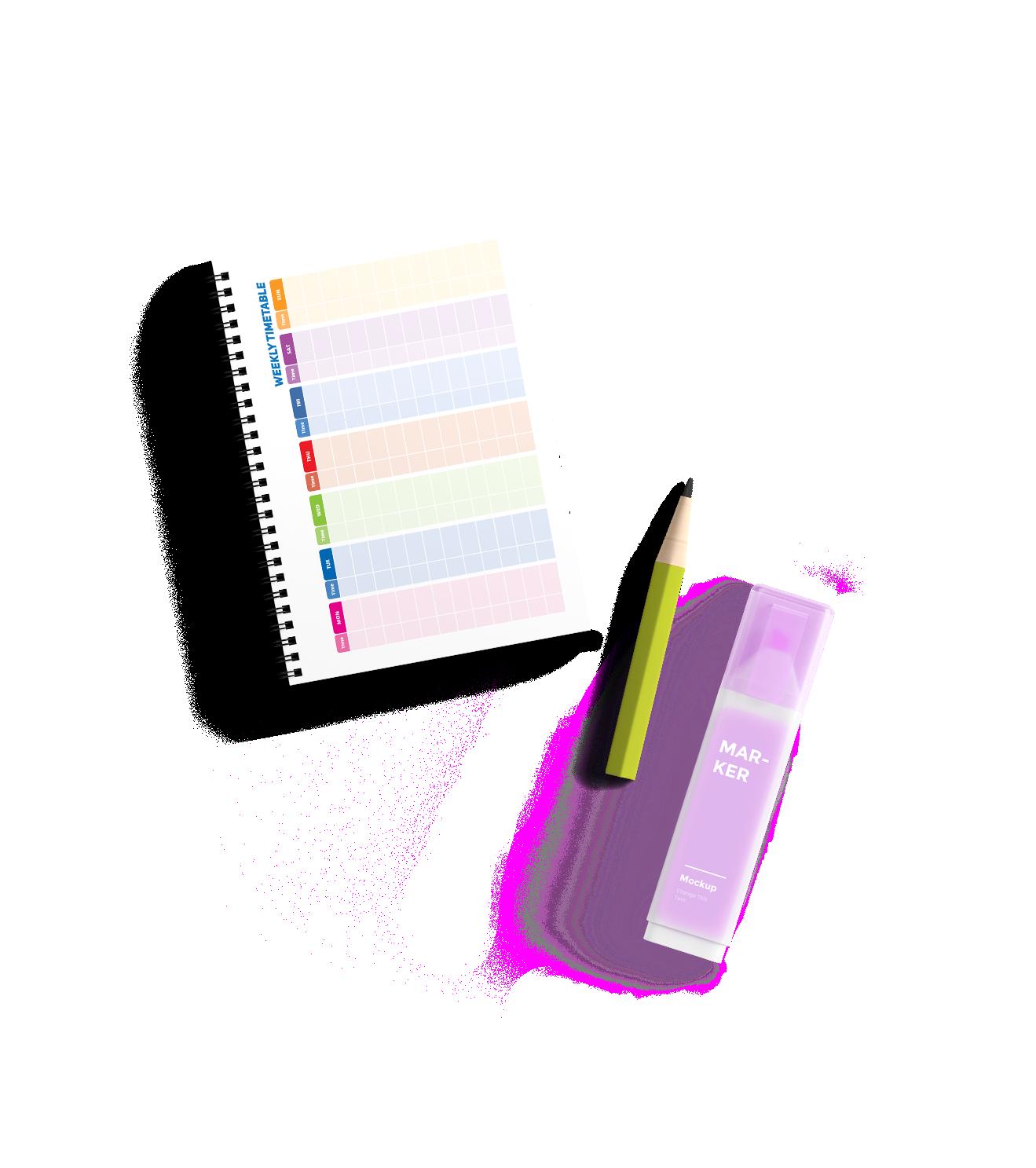
Follow the ‘POKER’ study system, which shows you how to create effective notes.

Regularly review each topic for five minutes to enhance recall and memory.
processing of this information, i.e. thinking about it
Academic success is not about grades or achievements. It is about trying your best. One way to get the best out of you is to organise your time. Successful exam students have a weekly study routine throughout the year, not just in the weeks running up to the assessments. The amount of study you should do every week varies depending on how focused and energised you are, your state of mind and the time of year. The most important thing is that you consistently work throughout the year.
Use our subject study planner for each of your subjects.
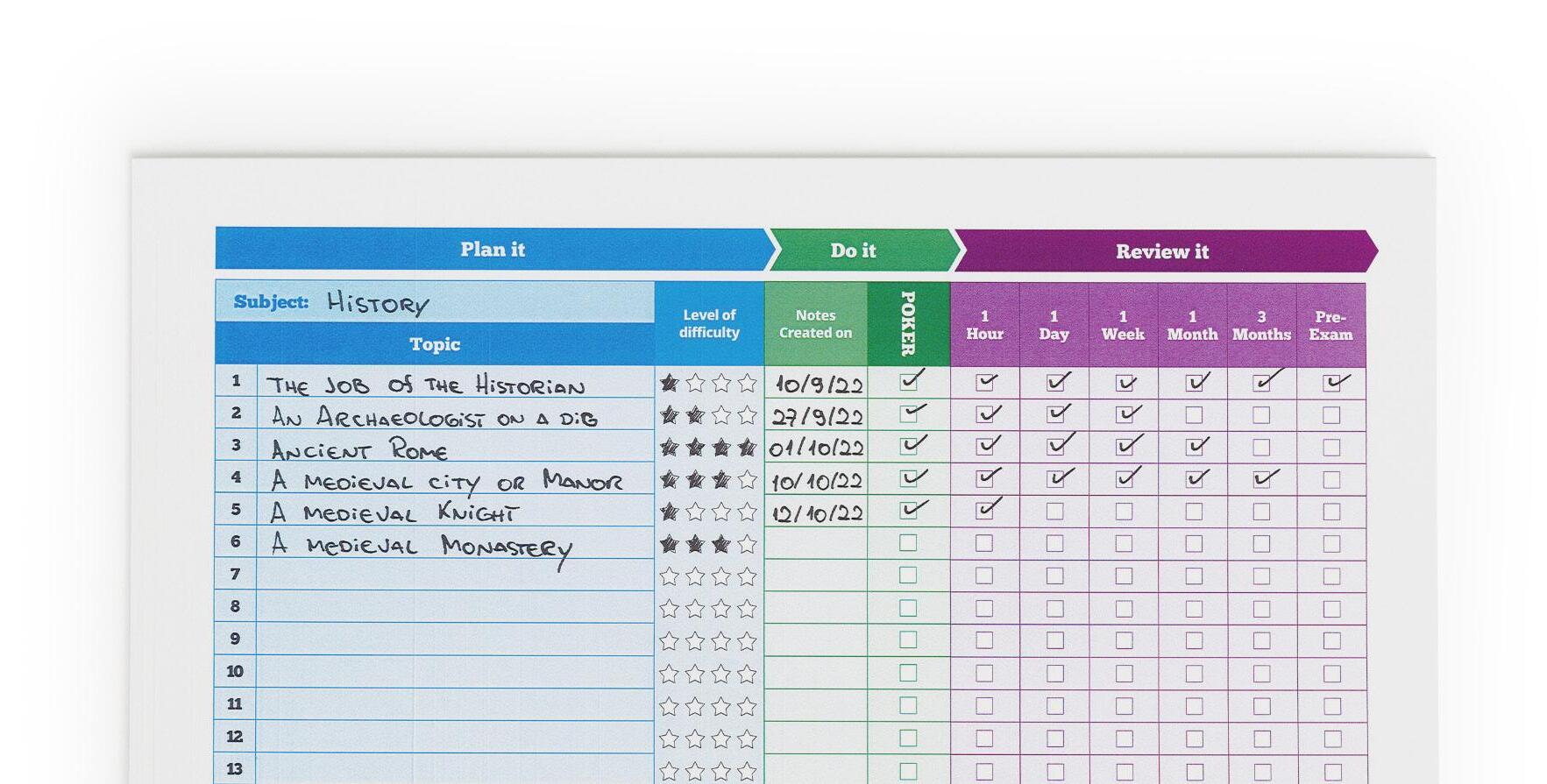
Divide each subject into key topics.
Indicate how important each topic is for your assessment.
Record when you create your study notes and complete POKER.
Tick the box to indicate when you have completed each of your review sessions for the topic.
Go to page 39 now and write the names of your subjects if you have not already done this. Break each subject into topics and indicate the importance of each topic for your exam.
Some students feel they need to know every little detail of every section of every subject to be really prepared for the exams. This is not so!
Ploughing through piles and piles of books and notes is not efficient use of study time. Instead, your past papers should become your best friend. You should be totally familiar with the structure and layout of each paper.
Studying is what you do to help you remember and prepare for assessments.
When you decide to sit down and study, you will need the most effective tools to organise and recall information for the exams. In the next few pages we have provided a step-by-step guide for studying using the best tools.
It is important that you identify which topics you need to study in each subject.
Organise your notes for each topic using the ‘POKER’ study system.
Once you have followed the POKER system, file your new one-page summaries or mind maps for each topic in an organised folder. You may have an individual folder for each subject or alternatively a larger folder with subdividers for each subject.
POKER is a simple 5-step methodology which you can use to create notes on any topic you wish to study.
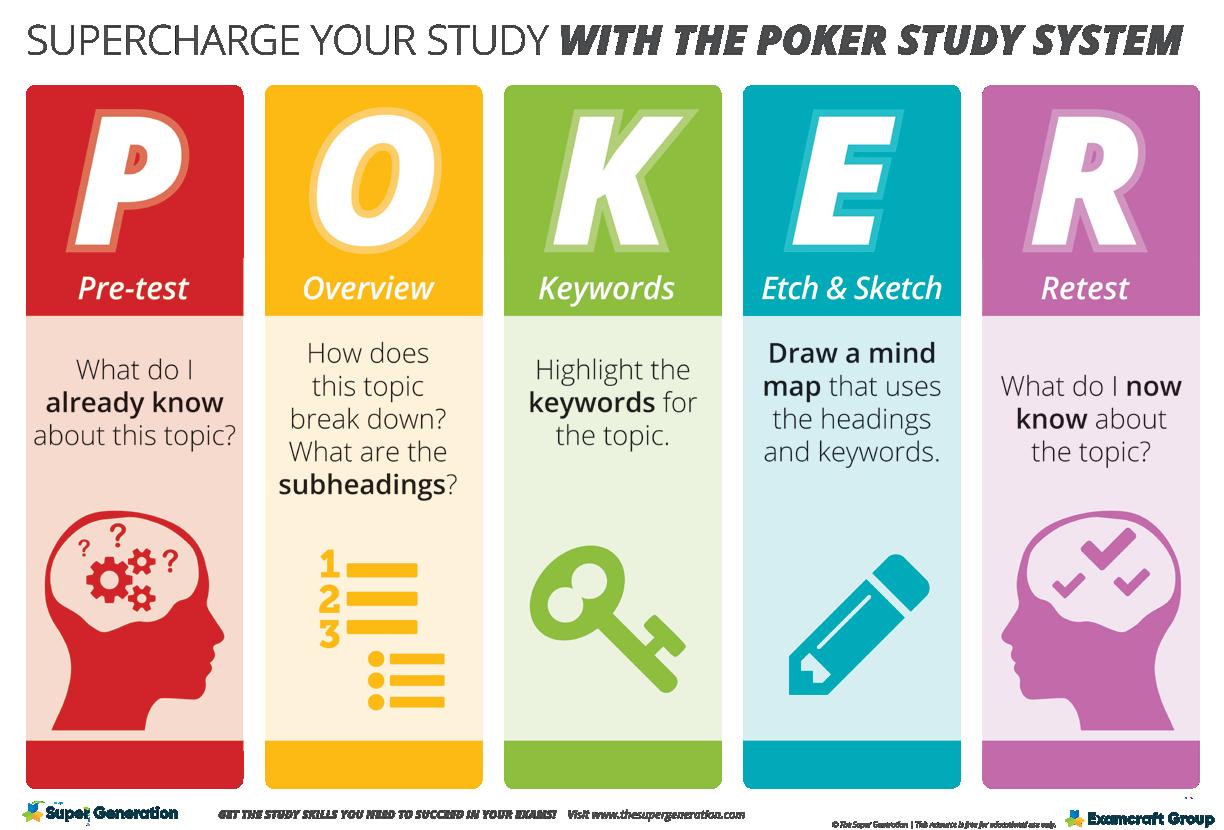
There is a worked example in Science for the Junior Cycle and English for the Leaving Certificate.
(In the workbook section, you will be brought through a worked example for the 1916 Rising, from Senior Cycle History)
Pre-test
Your first task is to focus your mind on what you are about to study by quickly finding out how much you already know about the topic. Simply take a piece of paper and write down everything you think you know about the topic, do not worry about whether it is right or wrong or even in the correct order at this stage.
Overview
Go to your book and class notes you already have for this topic, and pick out the main headings. They may be divided into different subtitles and subheadings. Take note of them all so you have a good idea of how this topic is divided up. You are giving your brain a structure to what you are trying to learn.
Keywords
This is where you select all the relevant and important keywords using a highlighter. Don’t just read it, actively read it! Pick out the good stuff and leave the rest behind! The important thing is that you are highlighting the words important to understanding this topic. For example, words such as ‘was’, ‘so’ or ‘about’ are not as important, you don’t need to learn them.
Once you have your keywords, it’s time to put them into note form. Notes can be recorded in many different ways. Colour and images help us to remember notes. For example, creating a mind map will help you retain a lot more information. It is easier for your brain to remember information when it is in the form of a mind map.
Retest
When your mind map is complete, memorise the key points from it. Then retest yourself on this mind map to see if you know it. If you’re having trouble memorising the key points, why not try a memory technique like the example given below?
Now that you have created your notes in the form of a one-page summary, you have this knowledge of the topic in your short-term memory.
BUT it won’t be there forever, it’s up to you to review it and make sure the knowledge goes into your long-term memory.
Why do we find it so easy to remember things like our parents’ names or our phone number?
The reason is because we use them so often that they are implanted in our long-term memory. Wouldn’t it be great if what we needed to know for the exam was that easy to remember?
When you learn something new in class, you may forget about 50% of it by the time you go home. This forgetfulness is normal but highlights the importance of regular review.
The chart shows how your recall (memory) diminishes over time and how regular review enhances recall.
Without review you are lucky to remember 10% of what you have learned after the first three months. This explains why many people get poor results in their exams or can’t remember the name of a person after meeting them just once. However, if you review the material on a regular basis, you dramatically increase your recall (memory).
To help with your regular reviews and to learn faster, we have created the 5 x 5 Review System. This requires you to review your notes five times in 5-minute sessions. The first time you create a one-page summary using the POKER system and then you review the topic five times.
IDEALLY, YOU COULD REVIEW EACH TOPIC AS FOLLOWS:
» After 1 Hour
» After 1 Day
» After 1 Week
» After 1 Month
» After 3 Months
The best way to record your study is at the end of each study session. Our Subject Study Planner allows you to plan your study, record your study sessions and track your own progress. Use the following step-by-step guide to use our Subject Study Planner on page 34:
Fill in the subject title for each of your subjects.
Break each subject into topics (look at your books, exam papers and speak to your teachers about the topics).
Indicate the importance of each of the topics for the exam (look at past exam papers and speak to your teachers).
Record your study session on the Subject Study Planner with the date the mind map was created on.
Plan to review the topic after 1 hour, 1 day, 1 week, 1 month and 3 months to commit to your long-term memory. Record each session in your Subject Study Planner.
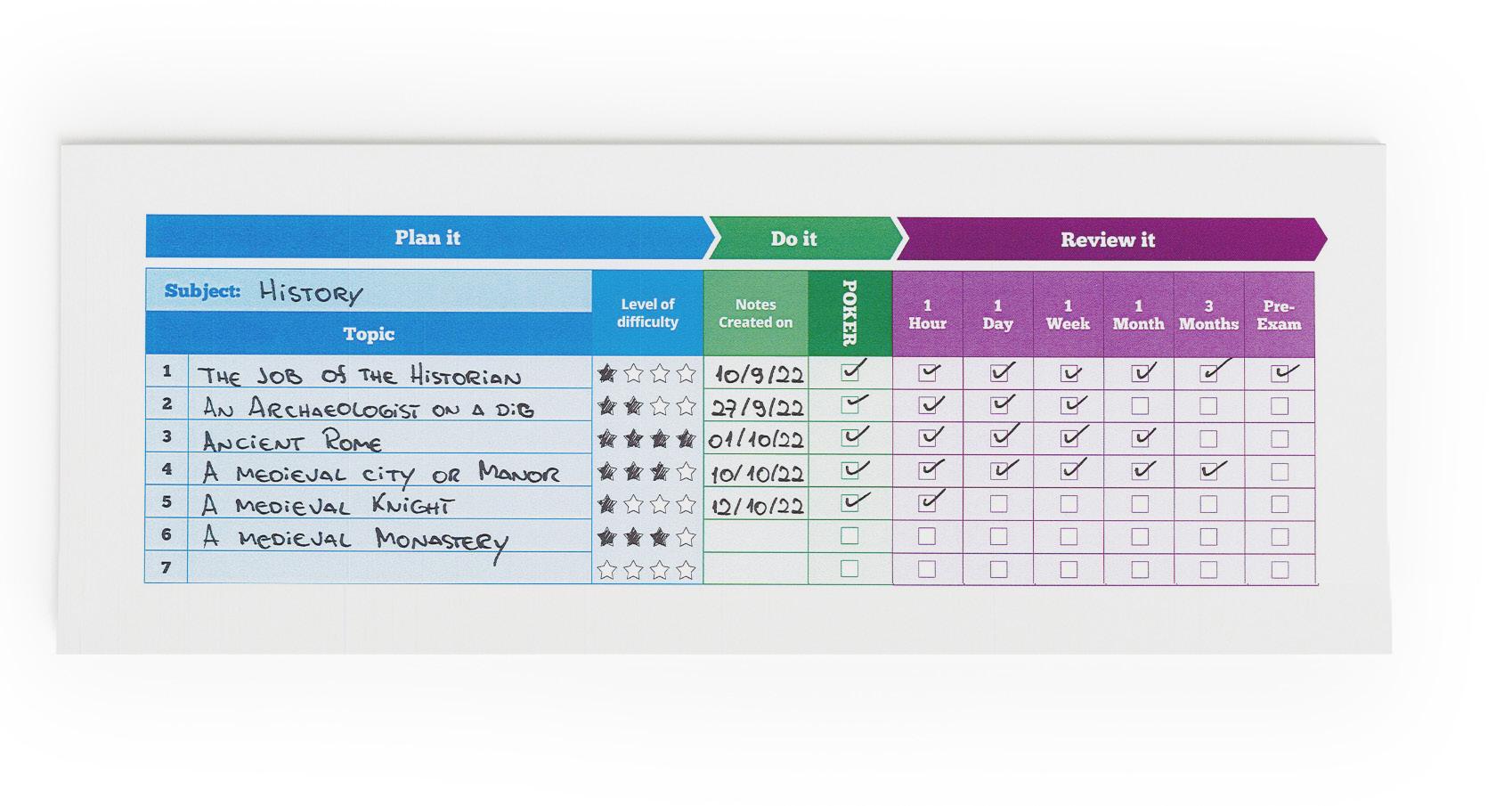
Flash cards are a set of cards with information for a particular topic or subject. The cards are very useful to quickly revise before exams, allowing you to revise the main points in a short space of time, which will help overcome stress and ensure success.
Light card that is strong is best to use because you will handle the cards many times over the next year or two. Flash cards are easy to store and carry around. You and a friend could get together and test each other.
Each card contains information relevant to a particular topic. On one side you have your key question and on the other side you have your answer.
You can create a set of cards for the key questions in each subject area. You should read three to four cards every night.
It is important to record how often you are reading and testing yourself with each flash card to make sure you are not missing any. So, make sure you number each card, then on a separate master sheet, write down the numbers on one side. Each time you read a flash card place a tick beside the number of that card. After a few weeks you may notice that there are some cards you have not read in a while, so you can focus on those cards.
1. Read the material slowly.
2. Identify the key words and phrases.
3. On one side of the card have the key question and on the other side have your answer.
4. Transfer the key words and phrases to the flash card (write as clearly as possible). Use colour.
One storage method is to perforate two holes into each card, allowing you to bind them into a circle. Read three or four cards, then flick them over so you will revise all cards on a regular basis. Remember, it is essential to test yourself.
Side one
What are the causes of globalisation?
Side two
5. Add some memory aids e.g. mnemonics, pictures.
• Improvements in transport
• Improvements in telecommunications
• Development of global banking system
• Increase in free trade
• Growth of MNCs
Most courses and textbooks contain definitions, facts and statements which must be understood, learnt and reproduced in exams.
Students are often surprised when they realise how many definitions are in every course or subject. Memory pages are a good way of memorising this information. We know that frequent revision aids long-term memory.
Each page contains a definition or key fact from each chapter on your course. So every time you read a page you are reading something from each chapter.
For example, the definitions from Leaving Certificate Science courses can be placed on 12 A4 pages, which allows rapid revision and testing. Many students are also surprised to realise that these pages account for 20 to 25% of the marks. They also form the basis of many of the longanswer questions.
You can read/revise all the pages in 10 to 15 minutes. When you now read a page you are reading something from each chapter in the course, giving you an overview of the entire course along with keeping the information fresh in your memory through frequent reviewing.
The memory pages are very useful if two friends work together testing each other.
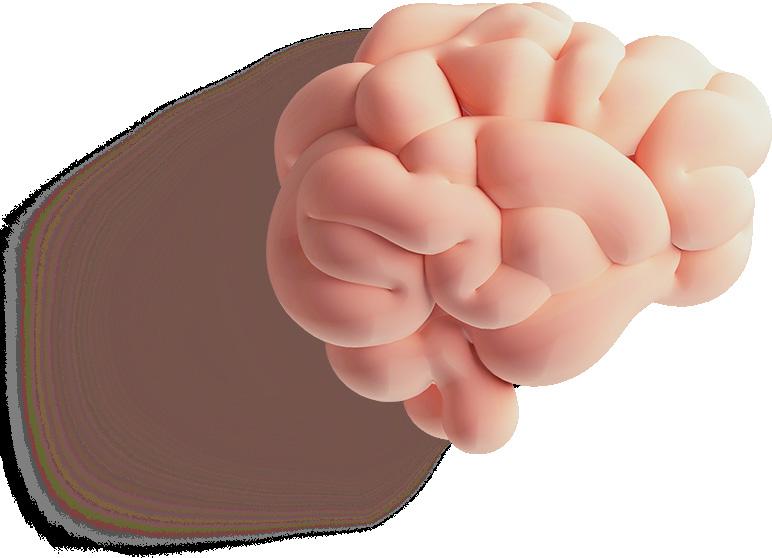
1. Use an A4 page.
2. Take your textbook and on the same page write the first definition, fact or statement from each chapter on the course.
3. Then take another page and now write down the second definition, fact or statement from each chapter.
IT WILL ONLY TAKE YOU 2 MINUTES TO READ TWO PAGES EACH NIGHT.
THINK ABOUT IT! YOU WILL BE ABLE TO REVISE ALL YOUR DEFINITIONS IN 12 MINUTES EVERY WEEK, THIS MEANS LESS TIME, MORE SUCCESS.
4. Continue this until you have the entire textbook/course summarised.
5. Staple or bind these pages together.
